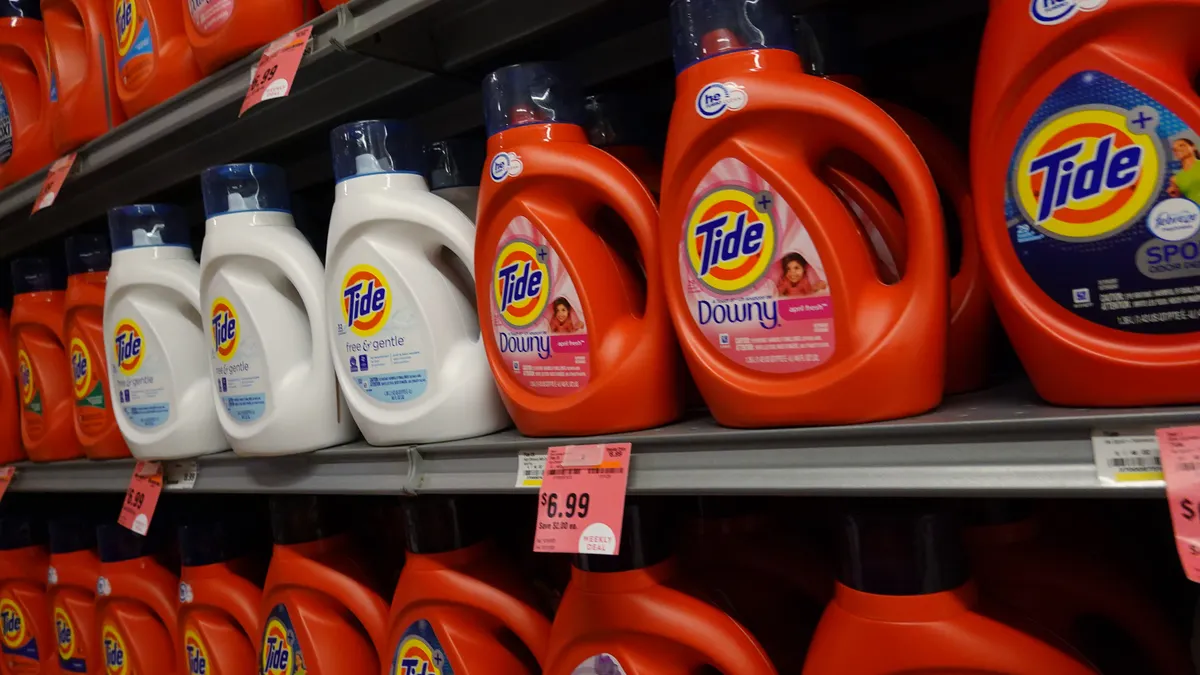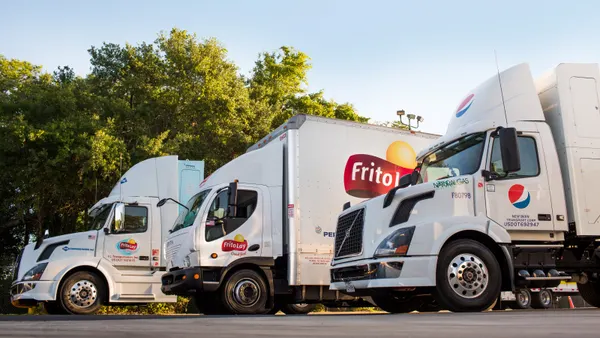Dive Brief:
- Procter & Gamble will delay efforts to align supply chain changes with Trump administration tariffs until their impact on suppliers is clearer, CFO Andre Schulten said during an April 24 earnings call.
- Existing tariffs have had the largest impact on raw and packaging materials and some finished products from China, Schulten said. Retaliatory tariffs most impact finished U.S. products exported to Canada.
- "Supply chain changes require certainty. We don't want to make short-term sourcing changes or short-term formulation changes unless we know what the environment is we're dealing with," Schulten said.
Dive Insight:
P&G's wait-and-see approach on tariffs differs from manufacturers scrambling to dodge the impact of the levies. Pharmaceutical companies Pfizer and Eli Lilly are ready to increase U.S. manufacturing to avoid tariffs, and the U.S. auto industry has sought relief by telling the White House that taxes on auto parts will cost carmakers billions of dollars, hike consumer prices and lower sales.
P&G rival Colgate-Palmolive joined U.S. manufacturers diversifying supply chains and reducing reliance on China, the country hit by the highest tariffs imposed by the Trump administration.
Over seven or eight years, P&G has invested more than $10 billion in the U.S. to bring production closer to consumers, per Schulten. Nevertheless, mitigating the tariff impact will require more changes to business operations.
"I think it's clear that productivity, innovation and pricing are probably the short-term levers that we will employ. But looking at all the other levers, including formulation and sourcing changes, obviously, as well," Schulten told investors.
On Monday, Procter & Gamble declined to elaborate on Schulten’s comments.
“It is premature to try to quantify longer term tariff impacts to the extent we are affected. This is a dynamic situation, and we are looking for every opportunity to mitigate potential impacts," a P&G spokesperson told Supply Chain Dive in an email.
P&G has been hurt financially by the Trump administration's taxes on imports. The company has lowered its sales forecast for fiscal year 2025 to flat from an increase of 2% to 4%. The before-tax impact on growth during the current fiscal quarter ending in June is $100 million to $160 million, and based on what the company knows today, the impact for the next fiscal year is $1 billion to $1.5 billion, Schulten said.
Nevertheless, it's still too soon to invest in major supply chain changes, the CFO said.
"So we're really waiting for certainty at this point in time for us to make decisions because those decisions are generally a) they have lead time of multiple months, sometimes years. And b) reversing them have similar lead times," Schulten said. "So any knee-jerk reaction doesn't make a whole lot of sense.”














